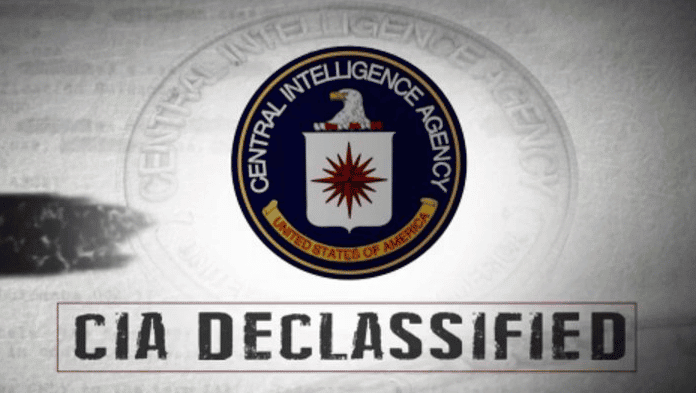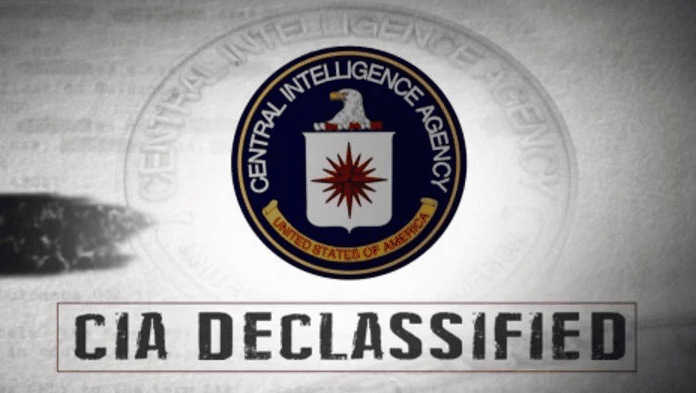
Not surprisingly, the mainstream media is aghast that President-elect Donald Trump is not automatically deferring to the CIA and its pronouncement that Russia intervened in the US presidential election with the intent of helping Trump defeat his Democratic Party opponent Hillary Clinton.
Never mind that the CIA has provided no evidence to support its claims. In the eyes of the mainstream media and the national-security establishment, that’s irrelevant. Trump’s responsibility, they hold, is to automatically, without question or challenge, defer to the authority of the CIA and accept whatever it says.
Of course, one big problem here is that the CIA, along with the rest of the national-security establishment, sometimes lies. In fact, CIA officials are expected to lie if they feel that “national security” depends on it.
Recall when CIA Director Richard Helms was asked under oath by Congress about the US government’s meddling in Chile’s presidential elections. He denied that the US government had engaged in such meddling. He lied, and his lie was ultimately discovered. Since he was the CIA director, he was given special treatment, permitted to plead to a misdemeanor, given probation, and fined. When Helms returned to CIA headquarters after sentencing, he was met with overwhelming cheers and support, which gives one a pretty good idea as to the CIA’s attitude about lying.
Don’t forget DIA chief Gen. James R. Clapper, Jr. He was asked under oath by Congress about whether the NSA was engaging in massive secret surveillance of the American people. He said, “Not wittingly.” He lied. As Edward Snowden revealed, the NSA was very wittingly, knowingly, and deliberately spying on the American people when Clapper made that statement. He was luckier than Helms. Nobody charged him with anything.
Indeed, casting doubts on the CIA’s pronouncement, Trump referred to the CIA’s bogus WMD pronouncements that were used to gin up support for the US invasion of Iraq.
It might also be instructive to mention in this context Operation Northwoods, the secret plan that the military component of the national-security establishment proposed to President Kennedy in 1962. It called for terrorist attacks and plane hijackings by US operatives posing as agents of Cuba’s communist regime, which thereby would provide a false pretext for invading Cuba and effecting regime change there. To Kennedy’s everlasting credit, he summarily rejected the plan.
Of course, the bogus pronouncement that North Vietnamese forces had attacked US warships operating off the coast of North Vietnam, which provided the pretext for the unrestrained US war in Vietnam, also come to mind.
There is another factor to consider in all this: the fact that the US government has no moral standing to object to any foreign interference in US elections. That’s because US officials come into the controversy with what is known in the law as “unclean hands.” That’s the legal doctrine that holds that whenever a party comes into court seeking equitable relief, it will be denied such relief if it has “unclean hands”—that is, if it itself has engaged in wrongful conduct.
While the CIA’s complaint about Russia is in the court of public opinion, the principle of unclean hands still holds, at least from a moral standpoint. For decades, the US government has been meddling in the affairs of other countries, in both democratic and non-democratic regimes.
I’ve already mentioned Chile, where the CIA engaged in bribery, kidnapping, murder, and a violent military coup which resulted in the kidnapping, rape, torture, incarceration, execution, or assassination of tens of thousands of innocent people, including two Americans, with the full support of the US government.
There is also Guatemala, where the CIA violently ousted the democratically elected president of that country and replaced him with a brutal unelected military general.
Also, the violent coup in Iran, where the CIA ousted the democratically elected prime minister, Mahammad Mossadegh, and replaced him with the brutal Shah of Iran.
Also, the invasions of Iraq and Afghanistan, with the aim of installing US-approved regimes into power.
And there is the US support of the military coup in Egypt, which destroyed that country’s experiment with democracy.
The list of countries, both democratic and non-democratic, in which the US government has intervened goes on and on. If I were Buddhist, I’d say that what is now happening with Russia might be karma, given all the meddling in other countries that the US national-security state has engaged in since its establishment in 1947.
Indeed, it would be a particularly ironic form of karma given the US government’s meddling in the affairs of Ukraine, with the aim of ousting the democratically president of that country, who was friendly to Russia, and replacing him with a president who was friendly to the United States. It was that US meddling, along with the NATO’s wish to install US missiles on the Russian-Ukraine border, that led to the crisis with Russia over Ukraine.
In fact, one cannot help but wonder if the US national-security establishment and the US mainstream media might not be suffering from some sort of massive subconscious guilt for all the damage, death, and destruction that their meddling and support of meddling have wrought in other countries. It certainly would not be the first time that deep, unresolved guilt manifested itself through projection and paranoia.
Reprinted with permission from the Future of Freedom Foundation.

